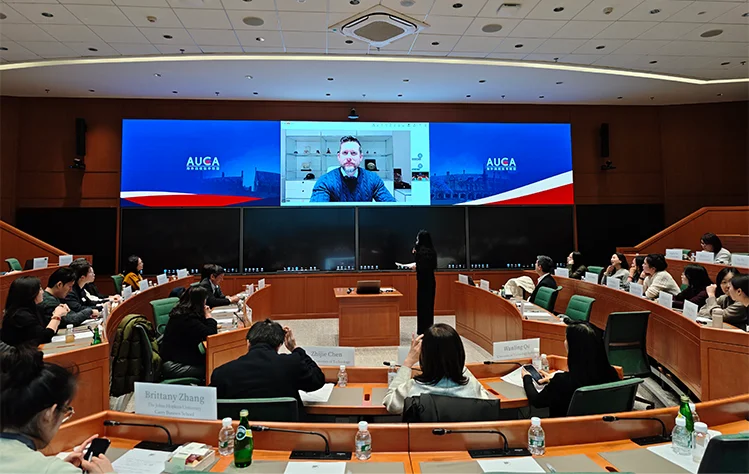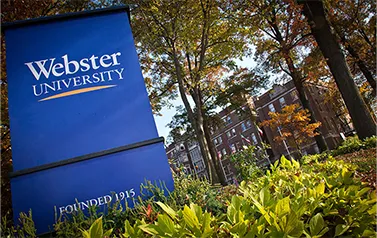The mission of the MA in Psychology with an Emphasis in Counseling Psychology program is to provide its participants with the knowledge and skills necessary to become competent in counseling psychology through academic and experiential learning.
The program aims at educating future psychologists who have sound knowledge of the theory and practice of counseling psychology, who are competent consumers and creative producers of social science research, who are competent in counseling practice, and who are ethical and sensitive to the cultures, values and worlds of various clients.
Viewing research and practice as interdependent and mutually supporting, the MA in Psychology with an Emphasis in Counseling Psychology program is based on the scientist-practitioner training model. The program is committed to both preparing counseling psychologists for advanced doctoral studies in psychology and providing training and experience that prepare students for practice. Its goal is to train psychologists who have a sound knowledge of the bases of counseling and psychotherapy. Adopting a multicultural perspective, the program also emphasizes the importance of multicultural competence in both research and practice.
To qualify as a professional psychologist or psychotherapist, a student may be required to complete additional education and licensure proceedings, depending on the national requirements of the country in which they wish to work. For example: To qualify as a professional psychologist in The Netherlands, students must have both a bachelor and a master degree in psychology. To qualify as Gezondheidszorg Psycholoog (professional psychologist) in The Netherlands further post-master's level training is necessary.

Student Perspective

"My experience at Webster was a constant exposure to multiculturalism, different perspectives and becoming accustomed to the growth that comes outside of my comfort zone. As a counselling psychologist specialized in working with multicultural people and expatriates, I can't think of a better program to prepare me to put myself in people's shoes, no matter how different from my own those may be. The richness of this diverse and global world is immediately felt at Webster because of its students and faculty from all over the world."
Agustin Davis Hayes
MA in Psychology with an Emphasis in Counseling Psychology
Learning Outcomes
Upon successful completion of the program, students will be able to:
- Explain the main approaches to counseling and psychotherapy and the role of the therapeutic relationship.
- Describe important theories of human development and examine their significance to counseling psychology.
- Discuss the major categories of psychological disorders and use this knowledge to assess and diagnose psychopathology.
- Describe the mechanisms of action for a variety of psychopharmacological agents and evaluate the role of psychopharmacology in counseling psychology.
- Describe the importance of professional ethics and demonstrate how ethical standards and legal requirements are relevant to the practice of counseling and psychotherapy.
- Administer and interpret various widely-used psychological tests.
- Construct the appropriate research design, collect data and implement the necessary statistical techniques to answer re-search questions relevant to counseling psychology which adds to the discipline.
- Demonstrate practical counseling skills that can be applied to individuals and groups to address a broad range of issues and settings.
- Integrate theory, experience, behavioral observation and analysis to systematically enhance counseling knowledge and skills.
- Evaluate the appropriateness of various counseling approaches to different cultures, values, and worldviews of various clients and choose appropriate approaches.
Accreditation
The MA in Psychology with an emphasis in Counseling Psychology is fully accredited in the U.S.
- Upon completion graduates of the MA in Psychology (emphasis in counseling psychology) can apply to the Dutch Psychological Society (NIP) and Nuffic for recognition of this U.S. accredited degree. The NIP and Nuffic will then inform graduates how this degree equates within the Dutch system but only after completion of the degree.
- This MA degree is fully accredited in the U.S., and graduates can continue with their professional psychology training in the U.S. This program is not Dutch accredited and does not lead to a degree based on the Dutch Law (Wet op het Hoger Onderwijs).
- Other countries recognize U.S. accreditations. This means this MA in Counseling Psychology counts toward the professional psychologist training in many countries. The exact training requirements differ across countries.
Master of Arts in Psychology
Find out more about the overall curriculum, electives, learning outcomes and more for our MA in Psychology program.
Additional Information
Highlights from the Netherlands

Internationalization of Higher Education: Practices and Challenges of ‘Going Global’
February 5, 2026

Webster University and Arcadia Abroad Partner to Expand Study Abroad Opportunities
January 21, 2026
Global Student Leadership Summit Empowers Students to Lead Across Borders
May 27, 2025
From May 18 to 23, a group of 23 undergraduate student leaders from across the Webster global network gathered at the...
